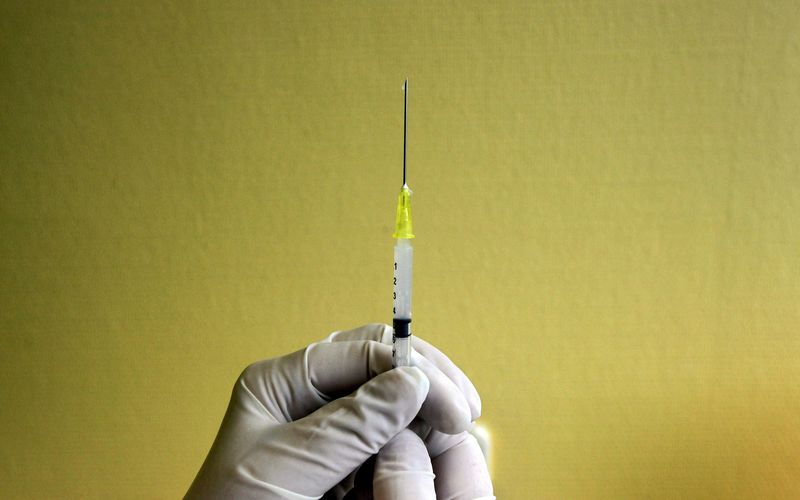By Ben Hirschler
LONDON (Reuters) - Philip Aubrey buys medicines for British government-funded hospitals across London, capital of the world's fifth-largest economy, but last year he struggled to secure supplies of a basic AIDS drug.
He is not alone. Shortages of essential drugs, mostly generic medicines whose patents have long expired, are becoming increasingly frequent globally, prompting the World Health Organization (WHO) to suggest minimum prices may be needed to keep some products on the market.
Drug shortages are due to a variety of factors from manufacturing, quality and raw material problems to unexpected spikes in demand, but such upsets are aggravated when there are few suppliers.
"It can be really problematic," said Aubrey.
The rise in shortages has gone hand in hand with a wave of consolidation among the companies making generic drugs - which range from global pharmaceutical giants to smaller firms in countries such as India - reducing the number of manufacturers making individual product lines.
Downward pressure on generic drug prices is good news for healthcare systems in the short term, but it may fuel disruption if a supplier hits production problems. While the lack of a patent means other suppliers could also make the same drug, they would still need regulatory approval and that can take years.
The result, according to experts, is a worryingly fragile supply chain, particularly for injectable medicines such as chemotherapy treatments and certain antibiotics.
Benzathine penicillin, for example, a vital drug for preventing transmission of syphilis from mother to child, has been in short supply for years because of manufacturing problems, inconsistent demand and a relatively low price.
"Medicines can be too cheap," said Hans Hogerzeil, professor of global health at Groningen University in the Netherlands and a former director for essential medicines at the WHO. "For a viable market model you need at least three and preferably five different manufacturers."
The idea of minimum prices for certain essential medicines contrasts sharply to traditional pricing debates about how to reduce the sky-high cost of new patented drugs for diseases such as cancer and hepatitis C.
Drug shortages will be discussed as a specific topic for the first time at this year's WHO World Health Assembly in May, and U.S. and European regulators told Reuters more needed to be done to address the problem.
Shortages in the United States hit a peak in 2011 due to manufacturing outages, yet the American Society of Health-System Pharmacists still lists 155 products as being in short supply.
The European Association of Hospital Pharmacists says more than four out of five of its members face regular shortages, while doctors in Canada have been grappling this year with tight supply of a widely-used epilepsy drug.
COUNTERFEIT RISK
Shortages in developing countries can go unreported for months or even years, increasing the risk of counterfeits entering the supply chain, according to Lisa Hedman, a procurement and supply chains expert at the WHO.
Hedman was an author on a WHO report released earlier this year setting out possible ways to tackle the problem.
These include a global notification system for supply problems, increased collaboration between regulators and potential advanced purchase commitments for priority drugs, as well as action on pricing.
Low-cost generic manufacturing has produced huge benefits in increasing drug affordability but the report warned: "Too low prices, however, may drive manufacturers out of the market."
Valerie Jensen, associate director of the U.S. Food and Drug Administration's drug shortage program, believes global action could complement national measures, such as a new FDA policy to speed reviews of generics competing with only one other product.
"We know that internationally this is a problem and we need to think of ways to address it," she said.
Drug regulators themselves have limited scope for action, since while they can keep a drug off the market, they cannot require a company to make a product.
"We need to sweet talk manufacturers to get them to think about best practices," said Brendan Cuddy, head of manufacturing and quality compliance at the European Medicines Agency.
Brendan Shaw, assistant director general at the International Federation of Pharmaceutical Manufacturers and Associations in Geneva, argues that recognising the need to keep generic drugmakers financially viable is essential.
"Companies don't like stock-outs either, so it is in everyone's interest to find a way forward," he said.
In London, medicines buyer Aubrey has now resolved the supply difficulties he faced over the HIV/AIDS treatment nevirapine, after one generic supplier eventually fixed its production problems, but he is still struggling to get supplies of other important drugs.
These include the bladder cancer therapy BCG and even diamorphine, or heroin, the powerful painkiller sometimes given to end-stage cancer patients.
As the man holding the purse strings, Aubrey needs to get a good deal on price but he worries that a couple of hundred medicines in Britain now have only one supplier.

"We need a balance," he said. "It’s not good news if there is a shortage and patient care is compromised."
(editing by David Stamp)